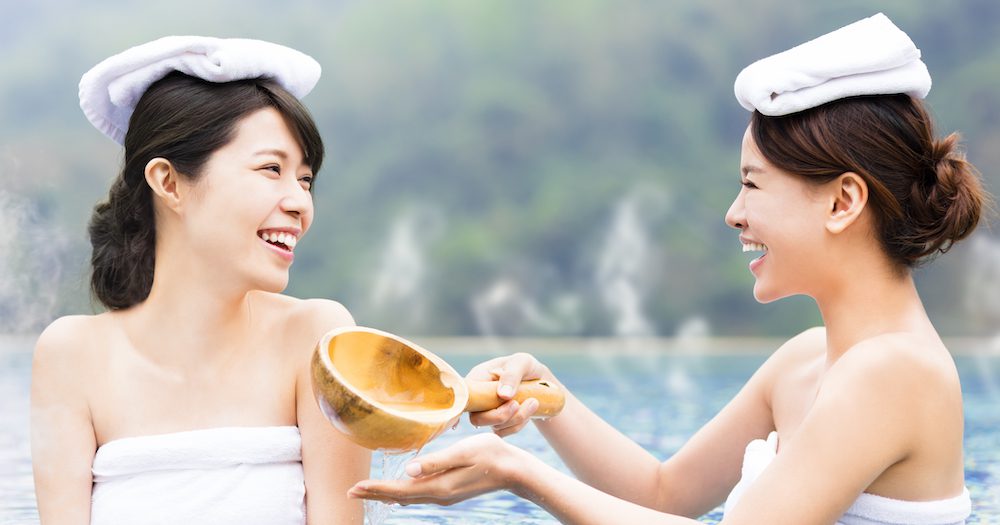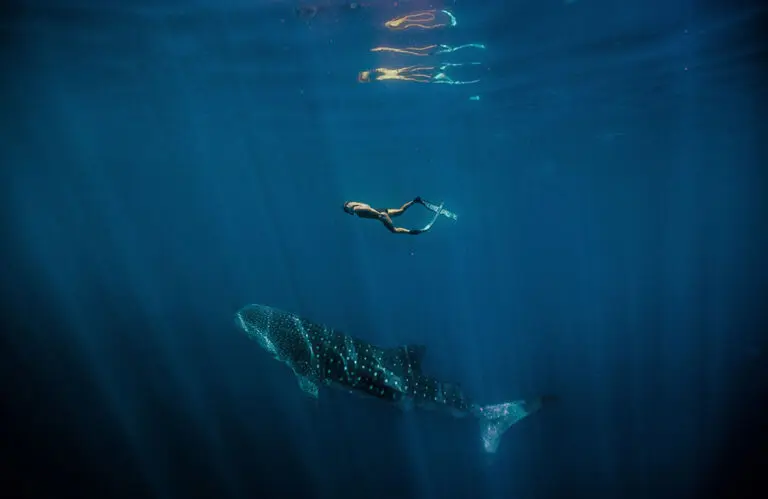Wanna impress your peers with your fantastic knowledge of traditional Japanese culture? You’re in the right place! Here are 5 facts that will have you putting Japan high on your travel list, post-pandemic.
Ah, a Japanese classic. Even the thought of a onsen or hot spring can cultivate peace, calm and relaxation.
Core to Japanese culture for centuries, the healing properties of water are the backbone of the wellness industry in Japan, manifesting in thousands of baths, saunas and steam rooms all over the country in all sorts of amazing landscapes and contexts.
And until you can fly to Japan and soak away the stresses of life, why not impress your friends with these interesting Onsen facts:
1) Why people put a towel on their head when in an onsen
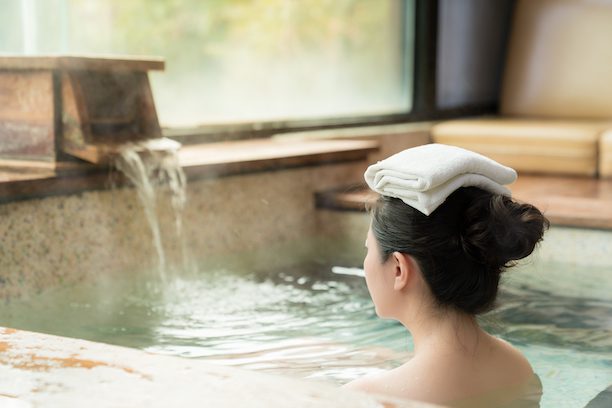
On top of the obvious reason, convenience, the wet towel on your head can prevent dizziness caused by hot blood rushing into one’s head.
Such a good life hack!
2) The health benefits of onsen
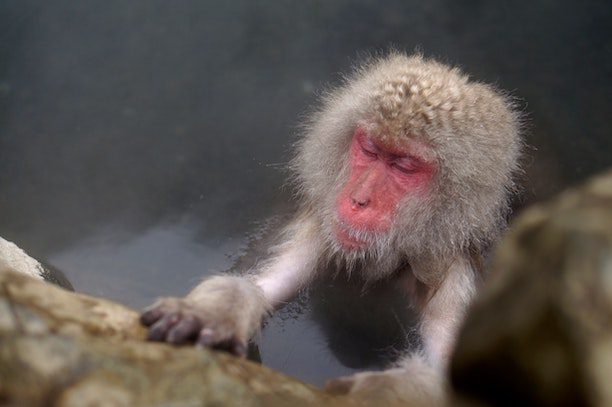
Apart from the relaxing aspect, Japanese people have also been visiting onsen for the healing of various health conditions – a purpose Japanese refer to as “Toji”.
Literally meaning “hot water cure” in Japanese, toji as a medical treatment involves staying for an extended length of time at a hot spring ryokan to absorb the healing benefits of the mineral-rich hot springs into one’s body.
This is said to aid in recuperation and the treatment and prevention of a variety of ailments – from insomnia and skin conditions to neuralgia and gastrointestinal ailments.
“Toji” onsen visitors usually stay about 1 week or so to absorb the maximum healing benefits.
Experience Toji virtually here.
3) There are 10 different types of spring water in Japan
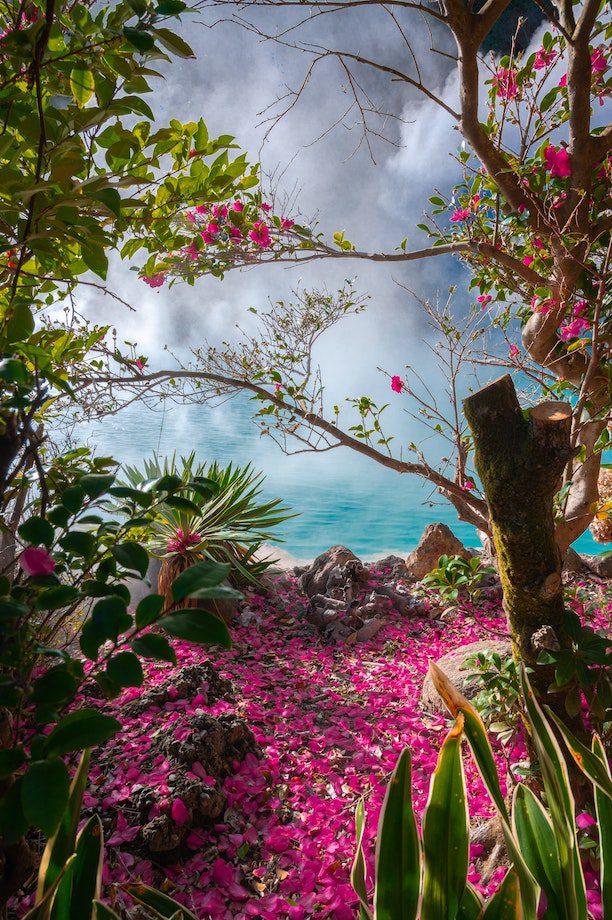
The 10 types of spring water are:
- Simple springs
- Chloride springs
- Sodium Bicarbonate Saline springs
- Sulfate springs
- Carbonated springs
- Ferruginous (Chalybeate) springs
- Acidic springs
- Iodine springs
- Sulphur springs
- Radioactive springs
Each of them has different therapeutic effects. How good is that?
4) Onsen in Kinosaki were once considered gifts from the guardian deity
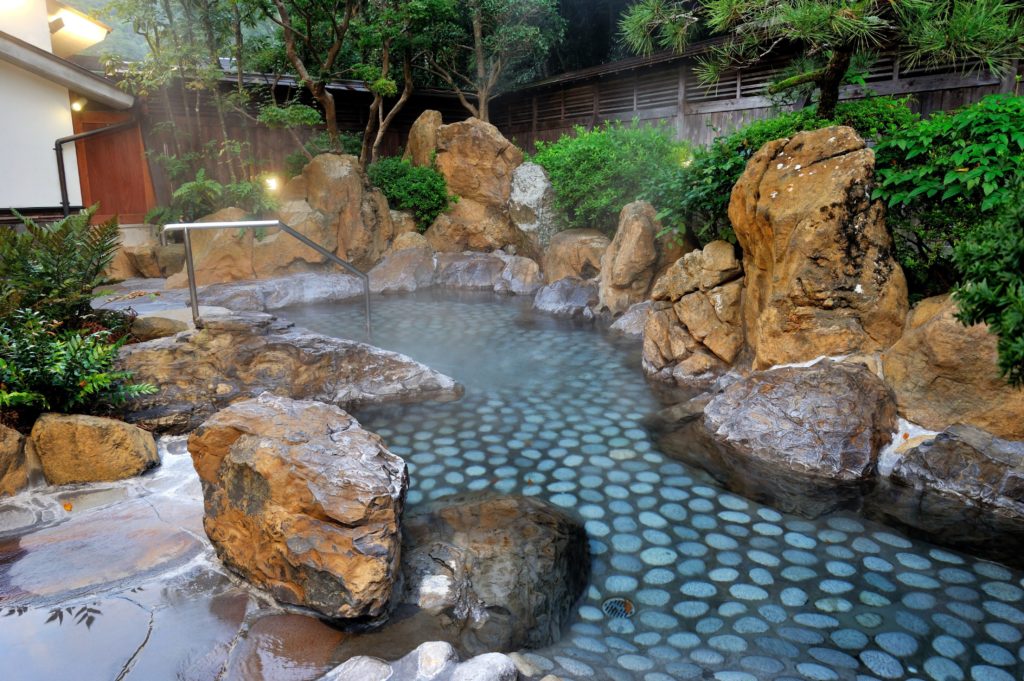
This made the waters sacred.
Before you could enter the waters you had to hike the mountain to Onsenji Temple.
Here you would pray to the onsen guardian for them to allow you to enter the sacred waters and be healed by them.
5) Tattoos are taboo in most Japanese onsen
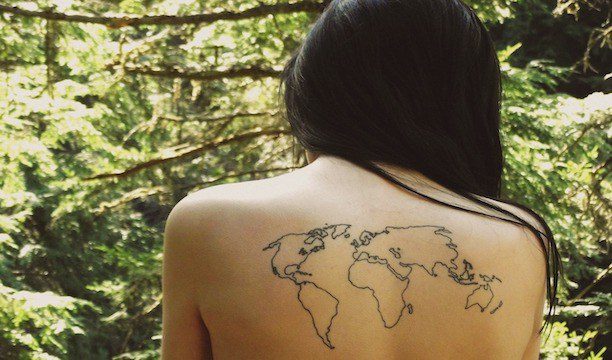
If you are one of the many visitors to Japan with tattoos, you will most likely be denied entry to most onsen due to tattoos traditionally being associated with criminal organisations.
However in some destinations, like Kinosaki, you don’t have to worry about your tattoos.
Some accommodations, however, have different rules regarding their own in-house onsen – so best to check before stripping off!


